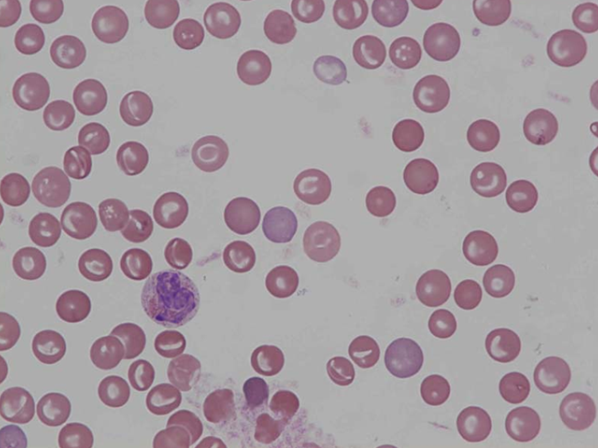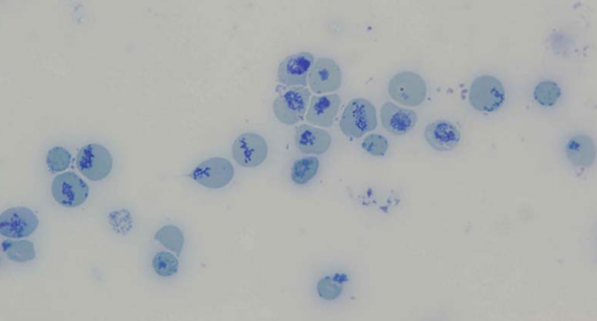Scientific Image Gallery
Welcome to our Scientific Image Gallery. Here you can find real-life examples of cell images, mostly (but not only) from peripheral blood films, that illustrate typical morphologic characteristics pointing to specific conditions or disorders. This constitutes their diagnostic value.
Click on an image to enlarge it and display a short description.
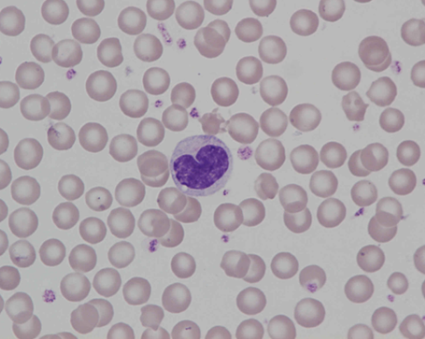
Rat monocyte with distinctive characteristics such as the colour shade of the cytoplasm and presence of vacuoles. The nucleus has a sharp notch.
<p>Rat monocyte with distinctive characteristics such as the colour shade of the cytoplasm and presence of vacuoles. The nucleus has a sharp notch.</p>
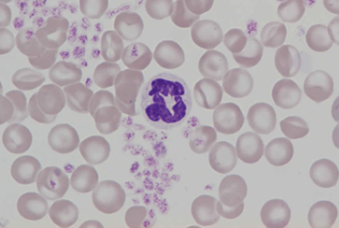
The nucleus of rat neutrophils is highly segmented, coiled, or ribbon-like with numerous indentations. The cytoplasm is pale with fine, diffuse granules. Mild platelet aggregation.
<p>The nucleus of rat neutrophils is highly segmented, coiled, or ribbon-like with numerous indentations. The cytoplasm is pale with fine, diffuse granules. Mild platelet aggregation.</p>
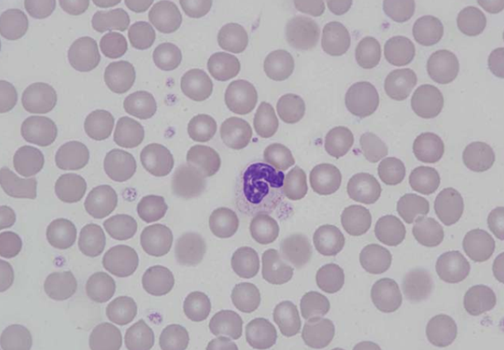
Rat neutrophils have pale cytoplasm with fine, diffuse granules. The nucleus is highly segmented, coiled, or ribbon-like with numerous indentations. This cell’s doughnut-shaped nucleus is folded.
<p>Rat neutrophils have pale cytoplasm with fine, diffuse granules. The nucleus is highly segmented, coiled, or ribbon-like with numerous indentations. This cell’s doughnut-shaped nucleus is folded.</p>
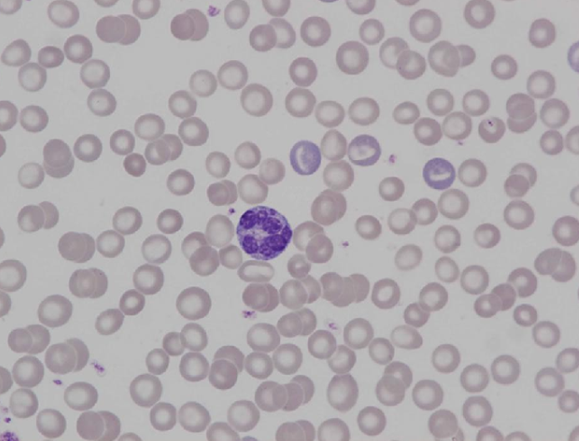
Anisocytosis, hypo- and polychromasia. In the centre, there is a neutrophil with a hypersegmented nucleus of which each segment is round – an atypical finding.
<p>Anisocytosis, hypo- and polychromasia. In the centre, there is a neutrophil with a hypersegmented nucleus of which each segment is round – an atypical finding.</p>
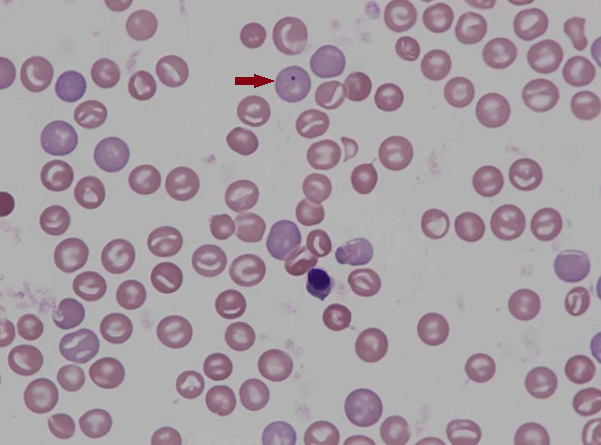
Blood smear of a rat showing various red blood cell morphologies: Howell-Jolly bodies (red arrow), helmet shapes, spherocytes, stomatocytes and a nucleated red blood cell.
<p>Blood smear of a rat showing various red blood cell morphologies: Howell-Jolly bodies (red arrow), helmet shapes, spherocytes, stomatocytes and a nucleated red blood cell.</p>
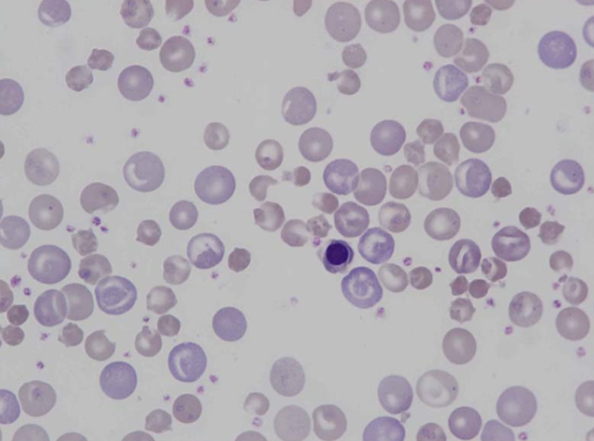
Blood smear of a rat showing marked anisocytosis, poikilocytosis and polychromasia. A nucleated red blood cell can be seen in the centre.
<p>Blood smear of a rat showing marked anisocytosis, poikilocytosis and polychromasia. A nucleated red blood cell can be seen in the centre.</p>
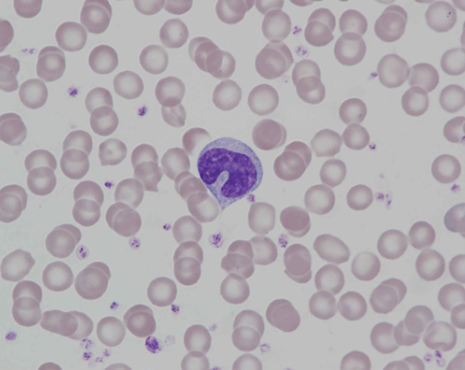
Typical monocyte of a rat. Both the colour shade of the cytoplasm and the shape of the nucleus reflect distinctive characteristics of this cell type.
<p>Typical monocyte of a rat. Both the colour shade of the cytoplasm and the shape of the nucleus reflect distinctive characteristics of this cell type.</p>
